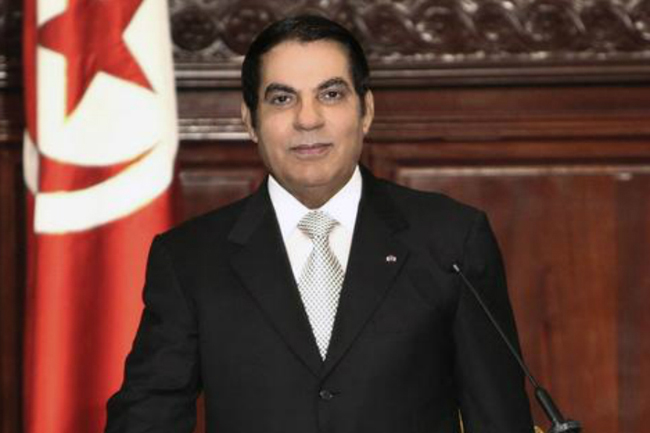Tunisia … News Time
The deposed Tunisian president Zine El-Abidine Ben Ali has died in Saudi Arabia after a prolonged illness. He was 83 years old. Tunisia’s foreign ministry has confirmed his death. Tunisian media previously reported his death Thursday through non-Tunisian sources. And his lawyer confirmed his death in a post on his page on Facebook. A source said that Zine El-Abidine Ben Ali had been suffering from lung cancer for a long time. He died of the disease in 2004. He was shifted to a hospital in Jeddah a month ago after deteriorating condition and died there. The source told Al Arabiya English that the former Tunisian president had been in a coma for the past three weeks. His health began to deteriorate in May.
Zine El-Abidine Ben Ali fled Tunisia to Saudi Arabia after a public protest against his government in early January 2011 and they have since lived in the coastal city of Jeddah. It should be noted that Tunisia was the first Arab Spring revolution, and then this wave of change spread to the Middle East and other countries in North Africa. Zine El-Abidine Ben Ali was a black and white owner of the country for 23 years. He was the country’s former chief of security. He took over as Prime Minister in 1987. He then declared Tunisian President Habib Bourguiba medically unfit for power and then became president of the country. They introduced reforms for economic development in the country but they also promoted corruption and inequality. And his close friends were charged with serious financial misconduct.
Zine El-Abidine Ben Ali Tunisia’s founding president, Habib Bourguiba, held key security positions in the government. He was appointed Military Security Chief in 1964 and was made National Security Chief in 1977. He also served as Tunisian ambassador to Poland for three years, but was called back to the country in 1984 to perform security duties. And the government took the responsibility of crushing the protests against the increase in the price of bread by holding him in the post of general. Zine El-Abidine Ben Ali was appointed interior minister in 1986 under President Habib Bourguiba’s government and prime minister a year later. During his first decade of power, he introduced massive economic reforms with the help of the International Monetary Fund and the World Bank. As a result, the Tunisian economy grew by more than 4 percent annually. But in the years following his rule, the economic condition of the common people had deteriorated and in December 2010, people started protesting against rising inflation and unemployment in the country. The same mass protest had abolished his sovereignty and he had no refuge anywhere in the country.




